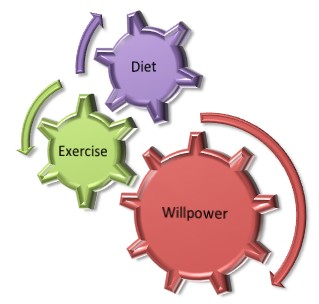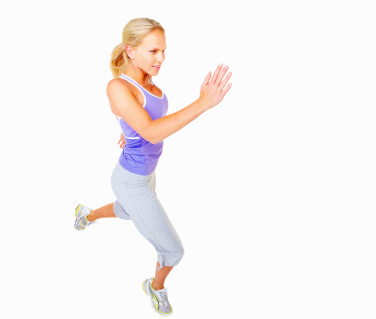Running for Weight Loss - The Things You Can Do to Battle the Bulge
Are you running for weight loss?
Well, you picked the perfect activity to engage in!
Frequently running?
Then you should have little difficulties with losing a few pounds!
Not yet reaping the benefits of jogging or not yet successful in losing weight?
Then this page will give you a few running tips on how to most effectively battle the bulge.
For a quick overview of this page, simply watch the video:
Running for Weight Loss Tip #1 : Combine with a Diet
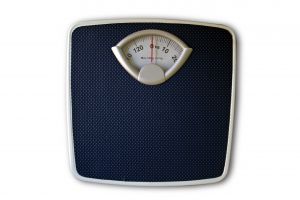
Your first running tip does not have anything to do with exercise. It's about what you eat and drink.
Weight loss is about 80% diet related. Because while running for weight loss, you need to consider that losing weight will only occur if you burn more calories than you consume.
So, that means stop taking in fast food, lower your alcohol intake to a maximum of one glass per day, eat your fruits and vegetables and avoid the four c's :
candy, cakes, cookies and other crap !
On the other hand, many of us try to lose weight through starvation. Eating so little it stops our bodies functioning properly. I have seen examples of people around me who built up a very warped relationship with food. In their efforts to lose weight they go too much to the other side and restrict their calorie intake to an absolute minimum. That does not work either.
The best diet includes plenty of fresh vegetables and lean protein and relies on a number of smaller meals during the day, e.g. three main meals of 300-400 calories and a few snacks of 150-250 calories.
A good way to keep track of what you are eating is using a journal to record all you eat. Do this for a few weeks and check your calorie usage (Do a Google search for calorie counter and you should be able to find one, MyFitnessPal.com is a good one).
Doing this for a prolonged time will give you a lot of insight in what you consume and how many calories certain foods contain.
When you wish to lower your calorie intake, you can have a good look at your journal and cut out those foods which are high in calories.
After the first few weeks, you will find that you pretty much know how many calories each type of food contains.
I appreciate that achieving weight loss is a tricky business. If it were easy, it wouldn't be a billion dollar industry. I have put a page together on the runner's diet which hopefully helps some more.
It talks about healthy foods, the role of sugary foods in the diet of a runner and the impact that extreme calorie restriction can have on your health and your performance.

Running for Weight Loss Tip #2 : It's (Almost) All About the Distance You Cover
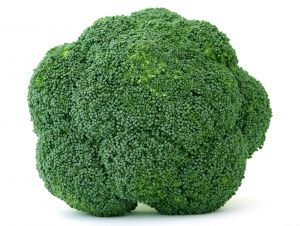 There is a tool on this
website which helps you
calculate the calories
burned while running.
There is a tool on this
website which helps you
calculate the calories
burned while running.This calories burned while running calculator gives a good approximation of how many calories you burn, using only two ingredients:
Nothing more.
Intense running (as I will tell you below) can be helpful in burning fat and burning calories.
You work harder and you cover a longer distance in the same time than when you run slow.
However, you can only do intense, higher speed exercise for shorter amounts of time and the risk of injuries is much higher.
So, cover distance, and don't be afraid to run slow!. This is where a run/walk program makes a lot of sense. Start slowly and gradually increase your distance and intensity. This will help you build up your endurance and strength gradually and should help you prevent injuries.
Running for Weight Loss Tip #3 : Run regularly
When you want to lose weight, you are not going to get it off with only one session per week. Run regularly. At least three times per week. Some kind of daily exercise is ideal.
Lots of us set a goal of hitting a number of steps per day, e.g. 10,000 steps per day. That's a really good goal to aim for and ensures you do some exercise every day. If you are only just starting to run, then running on a daily basis immediately is not the best idea. I have seen many people get injured that way. They run for three weeks, get a niggle and then stop doing exercise altogether.
Want to run daily? That's fine, but stick to easy / slow running only or follow a run/walk approach.
If you want to achieve weight loss, do some exercise pretty much every day, at least five days a week, and run three times per week at a minimum.
This does not immediately stop when you stop running.
Recent studies show that a 40 minute period of exercise will keep you burning calories at a higher rate for no less than nineteen hours after you have stopped running!
Only imagine if you did that three times a week or more!
Running for Weight Loss Tip #4 : Fat Burning Zone Myth
Running at a low speed is associated with burning fat.Even a website of a major heart rate monitor brand talks about running in the fat burning zone.
For once and for all, let's get the facts straight :
Hmmm, so does that mean that you do not automatically burn more fat if you run slow ...?
Exactly!
Several studies (from University of Texas and Laval University in Quebec for example) have in fact shown that intense exercise will generally help you burn more fat.
The optimal speed would be somewhere between tempo speed and interval pace.
 So, when running
for weight loss
you will want to
include some more intense exercise as well into your fitness regime.
So, when running
for weight loss
you will want to
include some more intense exercise as well into your fitness regime.
However, keep it reasonable.
One interval session per week is plenty.
That way you minimize your risks of getting injured.
And my general advice is to stay away from more intense running until you can, somewhat comfortably, cover 30 minutes of running non-stop.
You will want to make sure you are a little fitter when you start adding intense running sessions to your regime.
Why? Well, first of all, faster running is often a cause of injury. I'd like you to first get your body ready for running, then you can work on adding speed.
Second, when you are not able yet to comfortably run thirty minutes non-stop at a slower pace, how much ground do you think you'll cover when you go fast? Not a lot, I can tell you that!
Third, fast running sucks. It hurts. There is no need to put you through the pain, when you can achieve good results with going slower already!
OK, let's summarize what we have learnt by putting together some sample schedules for somebody who is running for weight loss:
The sample program for the beginning runner. We'll assume you run three times a week, you do some kind of cross-training (walking, swimming, exercise bike, strength training) and you are combining your exercise routine with a healthy diet:
| Day 1 | 4x2 minutes intense run with 2-3 minutes recovery in between |
| Day 2 | Cross Train |
| Day 3 | Run 30 mins or do a run/walk |
| Day 4 | Rest |
| Day 5 | Cross Train |
| Day 6 | Run 30 mins or do a run/walk |
| Day 7 | Cross-train or Rest |
The sample running program for the advanced runner who runs almost every day:
| Day 1 | 4-6 x5 minutes intense run with 2-3 minutes recovery in between |
| Day 2 | 30-45 minutes easy |
| Day 3 | Long run / Steady state for 45 to 90 minutes or more |
| Day 4 | 30-45 minutes easy |
| Day 5 | 30-45 minutes easy |
| Day 6 | 3x10 minutes tempo run (or alternative tempo workout) |
| Day 7 | Rest Day / Cross-train |
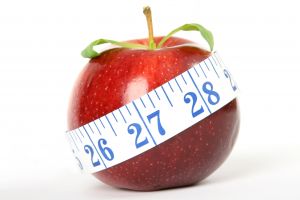
The sample running program for the advanced runner who combines running with cross-training (this looks a lot like the type of schedule I use!):
| Day 1 | 4-6 x 5 minutes intense run with 2-3 minutes recovery in between |
| Day 2 | Cross Train |
| Day 3 | Long run / Steady state for 60 to 120 minutes or more |
| Day 4 | Cross Train |
| Day 5 | Rest |
| Day 6 | 3x10 minutes tempo run (or other tempo workout) |
| Day 7 | Cross-train or Rest |
Of course, adjust this sample schedule to your own needs, but I hope you get the basic ideas:
Combine the above three with a healthy diet and you are doing everything you need to do to get the pounds flying off!
Don't Forget to Check all the Questions & Answers with More Running for Weight Loss Tips!!!
Home > Running for Weight LossHave a Question about Running for Weight Loss
Do you have a question about running for weight loss, diet, running when overweight, etc., etc?
Ask it and I can give you advice!
IMPORTANT: Make sure you provide sufficient information. What do you want to know, what are your current circumstances, are you already doing exercise/running at the moment, if so, how much, etc., etc.
The more information you provide, the better answer you get.
Questions of only 1 or 2 lines will normally be deleted because it is simply too hard to give a good answer.
What Other Visitors Have Asked
Click below to see questions from other visitors to this page...
Running in the Evening and Dinners - Am I Eating Too Late to Lose Weight?
Please can you help with this one. I run on the treadmill in the evenings around five or six o'clock. Whilst I want to lose half a stone, I don't want …
I Want 18lbs Gone - What to do About My Running and My Diet?
I am a beginner as far as running goes. I've been running on the treadmill for about 4 months now (but just started to run 5 days a week since a few weeks, …
Am I Running Miles or Kilometres - Want to Lose Weight as Well
Hi, I have been running on my treadmill now for a couple of years to stay in shape. It's a Carl Lewis Mot566. Recently I have struggled with my weight …
Getting Stressed Out Over Not Losing Weight
Hi there,
I really hope you can help me. I'm just so confused right now.
As it happens I have a treadmill that I love and I run on most days. I …
Running when Sixteen Stone
I am a 6'3 and 16 stone ex rugby player. I took up running after dislocating my neck when I was 34. I was running well until the past few weeks when …
Losing Inches
I have been a big fan of this site for a long time now. I'm doing my running on a treadmill at home as I can't get out with two small kids but I am enjoying …
Calories Consumed vs Calories Burned - Want to Lose Weight
Hello, a while back I decided to start running to be in better shape, but recently I read something that worries me. I've heard that the way to lose …
Food Intake and Running
I leave for work at 0645, and have breakfast about 0620, usually fruit and yoghurt. A sandwich at about 1000 and then I run in my lunch break, and eat …
Weight Loss and Running
I am currently 255 lbs. I was 280 lbs. I still have difficulty running for too long, how much should I run and what should I do to get there?
Answer …
Running for Weight Loss: How Many Miles Should I Run and How Many Days Should I Run For?
Hello, my name is Fiona, I asked a question here before and got a great answer to it and it really helped me with my running.
I have lost a few pounds …
Running and Weight Loss
I have been on a diet for 4 weeks and been hard out running and I have put on weight. It sucks and I want to give up, is there any reason for why I am …
Eating before Running
How long should I wait to go running after I eat?
And what would be a good snack to eat before running?
Answer by Dominique:
Hi there,
Thanks …
I have gained weight. Now I run slower...
I am a 17-year-old girl who used to run really fast. As a freshmen and sophomore I was on varsity running in the 18's consistently all cross country …
What Should Be Part of The Runner's Diet?
What should be part of the runner's diet?
I eat more after I have had a run... i.e. apples... toast, soup... possibly chocolate bar after dinner.... …
Discipline re Eating and Drinking
I'm 41 and I have been running off and on for 20 years. How can I discipline myself from eating too much or drinking too much?
Answer by Dominique: …
Running and Gaining Weight??
I have been running for about 8 years regularly at least 5 days including weight training.
I walk about 3 minutes and run about 40-45 minutes. …
Weight Loss
I've hit a major plateau within my season. I'm starting to improve but I really want to drop some weight because I think it would be healthier. I'm running …
Energy Intake Before I Run
What should I get before I run to give me energy when I run?
Answer by Dominique:
Hi Dennis,
Thanks for your running training question.
First …
Lose Weight By Running
I need to lose 20 lbs in 3 months and have just started Beginner Running Program 3. How many calories per day should I be eating?
I now weigh …
Running but not Losing Weight
I have been running now for 2 months and have taken 10 mins out of a 10k run.
Originally I ran it in 1hr 20 mins, but now I am down to 1hr 10 mins. …
Heavy and Race or Light and Race?
I've been running for years, but also did other aerobic activity, so never focused primarily on running.
I have been a fitness instructor and personal …
How Can I Increase Weight Loss?
Hi Dominique, I just started a running program on my treadmill.
It's a Walk/Run program. I am at 2 min walk/5 minutes run x 5 repetitions of this. …
Losing Weight with Running
I am a pretty new runner. I am trying to lose weight with running.
Is it best to alter speeds during each workout or have each workout at a different …
Running When Overweight. Good or Bad Idea?
I am thirty pounds or so overweight, but I am otherwise healthy, strong and have no joint problems.
I keep hearing that running while overweight is …
Home > Running for Weight Loss
What's New?
-
In the Army - Improving my 2 Mile Time
I am a 36 year old male who just joined the army. I have not run any long distance so I tried on my own to train and was doing ok but my times are still -
Marathon Diet - Improve Nutrition to do Better at the Marathon
I have got a question about my marathon diet. I have been an athlete all my life; mostly a runner, but cycle long distances sometimes. I am training -
Beginners Running Program 3 - Go from 0 to 30 Minutes of Running in 12 Weeks
The third beginners running program of Best Running Tips might be the best one. It is definitely the most popular. Get from couch to 30 minutes of solid running in only 12 weeks! -
Calories Burned Calculator - Calculate the Calories Burned While Running with This Calculator
This calories burned calculator calculates the calories burned while running, based on your weight and the distance you ran. -
Asthmatic Non-Runner With a Need to Run - 1.5 Miles in 13 Minutes
Truth be told I am NOT a runner. I can walk a 14 minute mile all day. But running, not me. I have had asthma since I was a child - severe through all -
Second Half Marathon in a Month - Should I Run It or Not?
Hi, I ran a half marathon a month ago, but have not done any great distances since, 6 miles max. I'm thinking of doing a half marathon this Sunday -
Running a 5k - Can I Be Faster at 30 Than I Was at 18?
I started running at 13 in high school. I ran cross-country, indoor and outdoor track. My track coach was very informed and my PRs were 800 - 2:22, -
Faster Minute Mile for 5K races
I'm 40 years old and I started to run consistently four months ego. My running pace went from 9 minutes miles to 7:30 minute miles in a 5k. Is it realistic -
I Need a Good Marathon Running Program
I am devastated. I ran my second marathon last weekend. I ran a marathon six months ago as well, but at about the 19-20 mile mark my legs cramped up... -
Is 20 to 30 Training Miles Enough to Run a Half Marathon
I have been a committed runner for a year and a half now and have completed two half marathons with over a dozen 10k races! I have been keeping running

